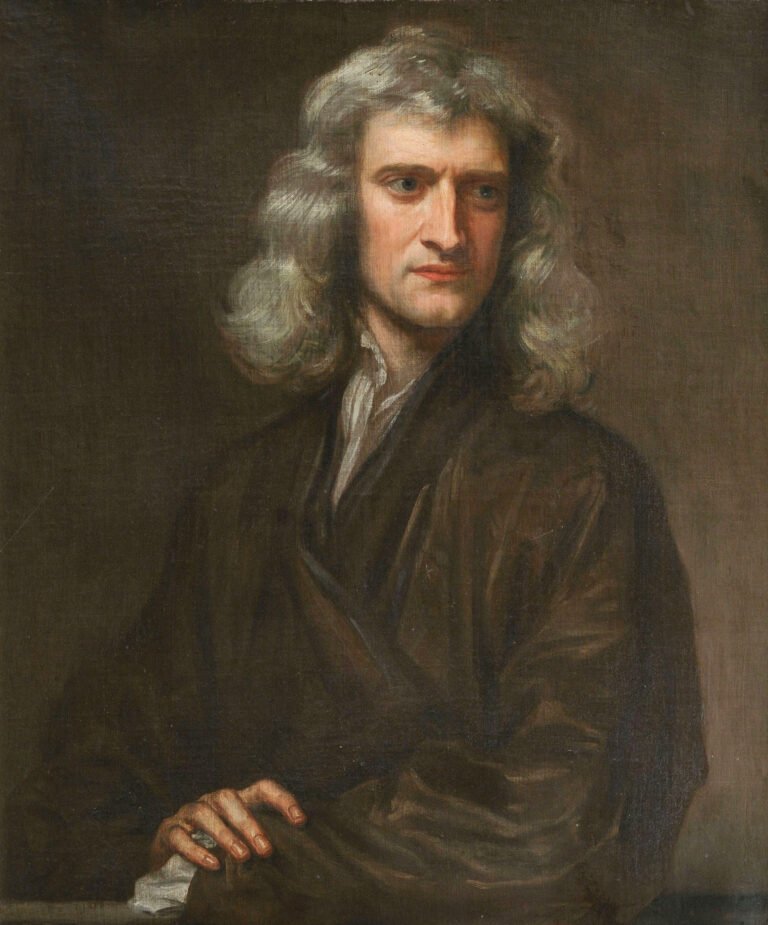Sir Francis Bacon, a name that echoes through the corridors of history, holds a significant place in the world of philosophy, science, and literature. Known as the father of empiricism, Bacon’s ideas laid the foundation for the modern scientific method.
Born in 1561, Bacon was a man ahead of his time. His contributions spanned various fields, including law, politics, and writing. Bacon’s works emphasized the importance of observation and experimentation in understanding the natural world. His innovative approach marked a shift from traditional methods of thinking.
As we delve into Bacon’s life and achievements, we uncover the profound impact he had on shaping modern thought. Understanding his legacy offers valuable insights into the evolution of science and reason.
Early Life And Education
Sir Francis Bacon, a renowned philosopher and statesman, had a remarkable early life and education. His upbringing and schooling greatly influenced his later achievements. Let’s delve into the key aspects of his formative years.
Childhood Influences
Francis Bacon was born on January 22, 1561, in London. His father, Sir Nicholas Bacon, was Lord Keeper of the Great Seal. His mother, Anne Cooke Bacon, was a learned woman of great intellect. These parental influences played a crucial role in shaping his early thoughts.
From a young age, Bacon showed a keen interest in knowledge. His mother taught him classical languages and literature. This early exposure to education laid a strong foundation for his future pursuits.
Academic Pursuits
At the age of 12, Bacon entered Trinity College, Cambridge. There, he studied under the guidance of renowned scholars. He excelled in various subjects, including philosophy and science.
After completing his studies at Cambridge, Bacon enrolled at Gray’s Inn to study law. His legal education further honed his analytical skills. These academic experiences significantly influenced his later works in philosophy and science.
Bacon’s early life and education were marked by a strong emphasis on learning. His parents’ influence and rigorous academic training shaped his intellectual journey. These early experiences paved the way for his future contributions to philosophy and science.
Philosophical Foundations
Sir Francis Bacon is known for his significant contributions to philosophy. He reshaped the way we think about knowledge and science. His ideas laid the groundwork for modern scientific methods. Let’s explore two key aspects of his philosophy: Empiricism and Rationalism.
Empiricism
Bacon emphasized the importance of observation and experience. He believed that true knowledge comes from sensory experiences. This approach is known as empiricism. Bacon’s method involved careful observation and experimentation. He argued that theories should be built on evidence. His views challenged the traditional reliance on ancient texts and authorities.
Empiricism led to new ways of thinking. It encouraged scientists to test their ideas through experiments. This method became a cornerstone of modern science. Bacon’s work inspired many future thinkers. He paved the way for advancements in various fields, such as physics, chemistry, and biology.
Rationalism
Though Bacon is often associated with empiricism, he also valued rational thought. Rationalism focuses on reasoning and logic. Bacon believed that reason should guide our understanding of the world. He saw the importance of combining empirical evidence with rational analysis.
Rationalism helps in forming hypotheses and theories. Bacon’s balanced approach promoted critical thinking. He urged scholars to use both observation and reason. This combination leads to a more comprehensive understanding of nature. His ideas influenced many philosophers and scientists who came after him.
Bacon’s philosophical foundations continue to impact modern thought. His emphasis on empiricism and rationalism shaped the scientific revolution. Today, his methods remain relevant and respected. They serve as a basis for scientific inquiry and discovery.
Contribution To Scientific Method
Sir Francis Bacon played a key role in the development of the scientific method. His work laid the foundation for modern science. Bacon emphasized the importance of observation and experimentation. These ideas transformed how science was practiced.
Inductive Reasoning
Bacon’s approach to science focused on inductive reasoning. This method involves drawing general conclusions from specific observations. Instead of starting with a theory, scientists gather data first. They look for patterns and make general statements based on their findings.
Inductive reasoning contrasts with deductive reasoning. Deductive reasoning starts with a general theory and tests it through experiments. Bacon believed inductive reasoning was more reliable. It allowed scientists to build knowledge from the ground up.
Experimental Approach
Bacon’s experimental approach was groundbreaking. He argued that experiments were essential for understanding the natural world. Scientists should not rely on ancient texts or pure logic. Instead, they should conduct experiments to gather evidence.
Bacon introduced a systematic way to conduct experiments. He outlined steps to ensure results were accurate. This method included:
- Making careful observations.
- Formulating hypotheses.
- Conducting controlled experiments.
- Analyzing results.
- Drawing conclusions.
This approach is still used in science today. Bacon’s ideas helped establish the importance of evidence-based research. His work paved the way for modern scientific inquiry.
Major Works
Sir Francis Bacon was a philosopher, statesman, and writer. He produced many influential works that shaped modern science and philosophy. Let’s explore two of his most significant contributions.
Novum Organum
Novum Organum, published in 1620, is one of Bacon’s key works. The title means “New Instrument” in Latin. It aimed to replace the old methods of scientific inquiry. Bacon criticized the Aristotelian method, which was dominant at the time. He proposed a new approach to knowledge. This approach is based on observation and experimentation.
In Novum Organum, Bacon introduced the scientific method. This method relies on inductive reasoning. It starts with specific observations. It then moves to broader generalizations. This was a groundbreaking shift in how people approached science.
Bacon’s method included four main steps:
- Observation
- Hypothesis formulation
- Experimentation
- Conclusion
This new method laid the foundation for modern scientific research. It remains influential today.
The Advancement Of Learning
The Advancement of Learning was published in 1605. It is one of Bacon’s most important works on education and learning. Bacon argued that knowledge should be pursued for the benefit of society. He believed that learning should not be confined to the elite. It should be accessible to everyone.
Bacon divided knowledge into three categories:
- History (Memory)
- Poetry (Imagination)
- Philosophy (Reason)
He emphasized the importance of empirical research. He also criticized the existing educational system. Bacon believed it was too focused on tradition and not enough on discovery. He called for a new approach to learning. This approach should encourage critical thinking and innovation.
The Advancement of Learning laid the groundwork for modern education. It influenced many later thinkers and educational reformers. Bacon’s ideas continue to shape our understanding of knowledge and learning.
Impact On Science
Sir Francis Bacon’s impact on science is profound and lasting. His innovative methods and ideas changed how research is conducted. Bacon’s contributions laid the foundation for modern scientific practices. He emphasized observation and experimentation, which are still used today.
Revolutionizing Research
Bacon introduced a new way of thinking about research. He stressed the importance of empirical evidence. This method relies on observation and experience rather than tradition. It was a significant shift from the medieval approach to science. Bacon’s method became known as the scientific method. This approach is a systematic way to study the natural world. It involves making observations, forming hypotheses, and conducting experiments. The scientific method remains a cornerstone of scientific research.
Influencing Future Scientists
Bacon’s ideas inspired many future scientists. His work influenced great minds like Isaac Newton and Galileo Galilei. These scientists further developed and applied Bacon’s methods. They made groundbreaking discoveries in physics and astronomy. Bacon’s emphasis on empirical evidence continues to guide scientific inquiry. His legacy lives on in the work of scientists around the world. Many credit Bacon with laying the groundwork for the scientific revolution.

Credit: en.wikipedia.org
Political Career
Sir Francis Bacon, a renowned philosopher and statesman, had a significant political career. His contributions to the political landscape were profound and enduring. He held various roles and had a clear political philosophy that guided his actions.
Roles And Responsibilities
During his career, Bacon held several important positions. He served as Attorney General and Lord Chancellor of England. These roles placed him at the heart of the English legal system. He was responsible for advising the King on legal matters and ensuring the law was upheld. His work influenced the administration of justice and the functioning of the government.
Political Philosophy
Bacon’s political philosophy was pragmatic and forward-thinking. He believed in the power of knowledge and its role in governance. He argued that a well-informed government could better serve its people. Bacon championed the idea of reform and modernization in government practices. His thoughts on governance emphasized the importance of empirical evidence and rational decision-making. This philosophy influenced his approach to his political duties and legislative initiatives.
Criticism And Controversies
Sir Francis Bacon, a prominent figure in the scientific revolution, was not without his critics. His work and life faced many controversies. These ranged from ethical concerns to skepticism about his scientific contributions.
Ethical Concerns
Bacon’s involvement in politics brought ethical issues to light. He served as Attorney General and Lord Chancellor of England. During his tenure, he was accused of corruption. In 1621, he faced charges of accepting bribes. This tarnished his reputation. He admitted to the charges but claimed he was a scapegoat. This scandal led to his political downfall. Many questioned his integrity and moral stance.
Scientific Skepticism
Bacon’s scientific methods also drew skepticism. He promoted empirical research and the scientific method. Some contemporaries doubted his theories. They believed his ideas were not practical. Critics argued that his approach lacked depth. They felt he oversimplified complex scientific issues. Despite this, his work laid the foundation for modern science. Yet, debates about his methods continue even today.

Credit: www.shakespeare.org.uk
Legacy
Sir Francis Bacon left a lasting mark on the world. His contributions to science, philosophy, and literature continue to influence us today. He is often called the father of empiricism. Bacon’s work laid the groundwork for the scientific method.
Enduring Influence
Bacon’s ideas have shaped modern scientific practices. He believed in observation and experimentation. This approach, known as the Baconian method, is still used in scientific research today. Bacon also wrote many essays. These essays covered topics like truth, love, and death. They are still read and studied by scholars.
Modern Relevance
Bacon’s legacy extends beyond science and literature. His ideas about learning and knowledge are still relevant. Bacon believed that knowledge is power. This idea is still important in today’s information age. Bacon’s work also influenced modern philosophy. He questioned accepted beliefs and sought new truths. This spirit of inquiry is central to modern thought.
FAQs
Who Was Sir Francis Bacon?
Sir Francis Bacon was an English philosopher, statesman, scientist, and author. He is known for developing the scientific method and modern empirical research.
What Are Sir Francis Bacon’s Contributions?
Sir Francis Bacon contributed to philosophy, science, and literature. He developed the scientific method and emphasized empirical research.
Why Is Sir Francis Bacon Important?
Sir Francis Bacon is important for his contributions to the scientific method. His work laid the foundation for modern scientific inquiry.
When Did Sir Francis Bacon Live?
Sir Francis Bacon lived from January 22, 1561, to April 9, 1626. He was active during the English Renaissance.
Conclusion
Sir Francis Bacon’s contributions remain significant today. His work in science and philosophy laid foundations. Bacon’s ideas influenced modern scientific methods. His quotes inspire critical thinking. Reflecting on his life reveals a true visionary. Bacon’s legacy continues to teach and motivate.
His writings encourage exploration and curiosity. Understanding his work enhances our knowledge. Sir Francis Bacon’s impact is timeless. His wisdom still guides our quest for truth.








